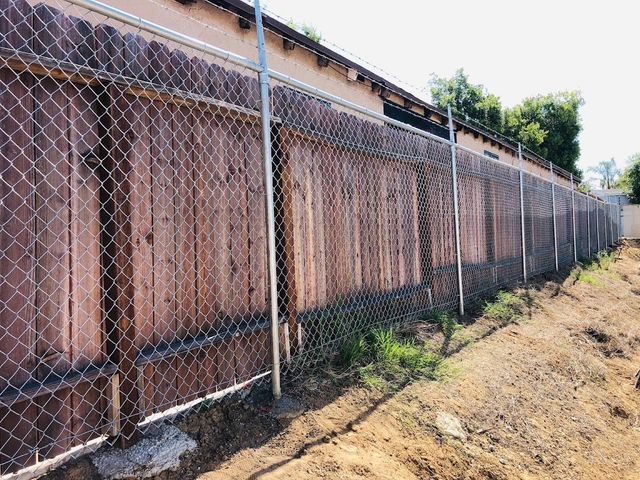All Categories
Featured
What Types of Fence Materials Are Offered for Residential and Commercial Projects?
Secure fencing is a flexible and functional addition to any kind of residential property, providing protection, personal privacy, and aesthetic appeal. Choosing the appropriate material depends upon the details needs of your property or business project. Allow's explore the most prominent fence products and what makes each ideal for various applications.- Wood Fencing. A perennial favorite, wood fence supplies a classic and all-natural appearance that suits various building types.
Benefits:
Adaptability: Available in styles like picket, split-rail, and privacy fences. Customizable: Can be tarnished or painted to match your design. Budget friendly: A cost-effective choice for several house owners. Limitations: Normal upkeep is essential to protect versus rot, warping, and insects.
- Vinyl Secure fencing. Plastic has actually ended up being a go-to alternative for those that want low-maintenance, sturdy fencing.
Benefits:

Weather Resistant: Manages severe temperature levels and dampness without breaking down. Low Upkeep: No demand for painting or staining; occasional cleansing is enough. Wide Range: Is available in numerous colors and appearances, including wood-like surfaces. Drawbacks: The in advance price is greater, yet lasting savings on maintenance can offset this.
- Chain-Link Fence. Practical and cost-effective, chain-link secure fencing is suitable for protecting big locations like commercial websites or play grounds.
Advantages:
Affordability: Among the least expensive fencing choices. Resilience: Resistant to weather and physical damages. Personalized: Can include privacy slats or coatings for a refined look. Considerations: Offers limited personal privacy unless supplemented with additional attributes.
- Light weight aluminum Fence. Recognized for its sleek and modern look, aluminum is a popular option for household and industrial properties.
Trick Features:
Rust-Free: A perfect remedy for damp environments. Lightweight: Easier to mount compared to steel or iron. Ornamental: Commonly utilized to duplicate the appearance of functioned iron. Limitations: Not as solid as steel, making it less suitable for high-security requirements.
- Wrought Iron Fence. Wrought iron integrates elegance with toughness, making it a costs choice for upscale properties.

Advantages:
Customizable Styles: Includes an advanced, one-of-a-kind touch to any kind of building. Phenomenal Longevity: Stands the test of time with appropriate upkeep. Safety: Difficult to damage or breach. Challenges: High price and the need for routine upkeep to avoid corrosion.
- Composite Fence. Composite secure fencing, made from a mix of wood fibers and plastic, is an environment-friendly alternative with the look of all-natural wood.
Benefits:
Eco-Friendly: Often made from recycled materials. Toughness: Resistant to weather, rot, and pest damages. Low Maintenance: Calls for little maintenance contrasted to standard timber. Drawbacks: Higher first expenses contrasted to basic wood fencing.
- Steel Fence. Steel secure fencing is a robust solution for residential or commercial properties needing optimal security.
Functions:

Long lasting: Withstands substantial physical and ecological tension. Adjustable Coatings: Powder covering improves its resistance to corrosion. Security-Focused: Ideal for risky or industrial locations. Considerations: Much heavier and much more pricey than light weight aluminum.
- Bamboo Fence. For eco-conscious jobs, bamboo offers a sustainable yet trendy choice.
Advantages:
Eco-friendly: Bamboo regrows promptly, making it renewable. Distinct Aesthetic: Includes a natural, exotic touch to your residential property. Cost-efficient: Usually less costly than hardwood alternatives. Challenges: Much less long lasting in wet environments and may need treatments for long life.
- Stonework and Stone Fencing. For a truly long-term option, rock or block secure fencing offers unmatched toughness and aesthetic charm.
Secret Features:
Resilience: Lasts for decades with very little upkeep. Noise Decrease: Suitable for buildings near active roads. Stylish Look: Creates a magnificent and elegant appearance. Disadvantages: High installment costs and limited flexibility for changes.
Selecting the Right Fence Material. When choosing fence for your building, consider the following variables:
Purpose: Identify whether you prioritize personal privacy, safety, or appearances. Budget plan: Some materials, like wood and chain-link, are more budget friendly, while others, like rock or wrought iron, call for a bigger investment. Upkeep Needs: Materials like vinyl and aluminum are low-maintenance, while wood and iron call for even more treatment. Neighborhood Environment: Choose a product that withstands your area's weather. Verdict. From the rustic appeal of wood to the modern elegance of light weight aluminum, there's a secure fencing material for each property or commercial project. Each alternative supplies distinct advantages, so comprehending your building's specific needs will certainly aid assist your decision. Seek advice from a specialist secure fencing specialist to discover designs, materials, and setup options to bring your vision to life.
Latest Posts
The Restroom Upgrade Every Detroit Home Should Have
Published Apr 21, 25
1 min read
Built on Top Quality, Driven by Service
Published Apr 21, 25
1 min read
See the Montclare Promise - Top-Quality Auto Repair
Published Apr 21, 25
2 min read